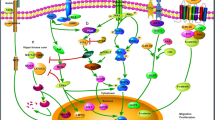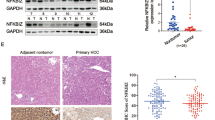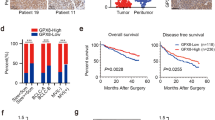Abstract
Phenformin (Phen), a potent activator of AMPK, is effective against some resistant cancers. This study evaluated the inhibition of proliferation, migration, invasion, and angiogenesis by Phen in aggressive cancer cells and investigated the underlying mechanism of the inhibition. Cholangiocarcinoma (CCA) KKU-156 and KKU-452 cells were used in this study. The results showed that Phen suppressed cell proliferation and induced apoptosis in both cells. Phen suppressed migration and invasion of cancer cells in wound healing and transwell chamber assays, respectively. The effects were associated with depletions of glutathione (GSH) and decreased glutathione redox ratio which represents cellular redox state. The redox stress was linked with the loss of mitochondrial transmembrane potential, as evaluated by JC-1 assay. The effect of Phen on angiogenesis was performed using HUVEC cultured cells. Phen alone did not affect tube formation of HUVEC cells. However, conditioned media from CCA cell cultures treated with Phen suppressed the tube-like structure formation. The antitumor effect of Phen was associated with AMPK activation and suppression of mTOR phosphorylation, HIF-1A, and VEGF protein expression. In conclusion, Phen inhibits cell proliferation, migration, invasion, and angiogenesis probably through AMPK-mTOR and HIF-1A-VEGF pathways. Phen may be repurposed as chemoprevention of cancer.





Similar content being viewed by others
References
American Diabetes A (2019) 9. Pharmacologic approaches to glycemic treatment: Standards of Medical Care in Diabetes-2019. Diabetes Care 42:S90–S102
Appleyard MV, Murray KE, Coates PJ, Wullschleger S, Bray SE, Kernohan NM, Fleming S, Alessi DR, Thompson AM (2012) Phenformin as prophylaxis and therapy in breast cancer xenografts. Br J Cancer 106:1117–1122
Banales JM, Cardinale V, Carpino G, Marzioni M, Andersen JB, Invernizzi P, Lind GE, Folseraas T, Forbes SJ, Fouassier L, Geier A, Calvisi DF, Mertens JC, Trauner M, Benedetti A, Maroni L, Vaquero J, Macias RI, Raggi C, Perugorria MJ, Gaudio E, Boberg KM, Marin JJ, Alvaro D (2016) Expert consensus document: cholangiocarcinoma: current knowledge and future perspectives consensus statement from the European Network for the Study of Cholangiocarcinoma (ENS-CCA). Nat Rev Gastroenterol Hepatol 13:261–280
Cerezo M, Tichet M, Abbe P, Ohanna M, Lehraiki A, Rouaud F, Allegra M, Giacchero D, Bahadoran P, Bertolotto C, Tartare-Deckert S, Ballotti R, Rocchi S (2013) Metformin blocks melanoma invasion and metastasis development in AMPK/p53-dependent manner. Mol Cancer Ther 12:1605–1615
Chaiteerakij R, Yang JD, Harmsen WS, Slettedahl SW, Mettler TA, Fredericksen ZS, Kim WR, Gores GJ, Roberts RO, Olson JE, Therneau TM, Roberts LR (2013) Risk factors for intrahepatic cholangiocarcinoma: association between metformin use and reduced cancer risk. Hepatology 57:648–655
Dandapani M, Hardie DG (2013) AMPK: opposing the metabolic changes in both tumour cells and inflammatory cells? Biochem Soc Trans 41:687–693
Di Magno L, Manni S, Di Pastena F, Coni S, Macone A, Cairoli S, Sambucci M, Infante P, Moretti M, Petroni M, Nicoletti C, Capalbo C, De Smaele E, Di Marcotullio L, Giannini G, Battistini L, Goffredo BM, Iorio E, Agostinelli E, Maroder M, Canettieri G (2020) Phenformin inhibits hedgehog-dependent tumor growth through a complex I-independent redox/corepressor module. Cell Rep 30:1737–1752
Do MT, Kim HG, Khanal T, Choi JH, Kim DH, Jeong TC, Jeong HG (2013) Metformin inhibits heme oxygenase-1 expression in cancer cells through inactivation of Raf-ERK-Nrf2 signaling and AMPK-independent pathways. Toxicol Appl Pharmacol 271:229–238
Dodd KM, Yang J, Shen MH, Sampson JR, Tee AR (2015) mTORC1 drives HIF-1alpha and VEGF-A signalling via multiple mechanisms involving 4E-BP1, S6K1 and STAT3. Oncogene 34:2239–2250
Halestrap AP, Richardson AP (2015) The mitochondrial permeability transition: a current perspective on its identity and role in ischaemia/reperfusion injury. J Mol Cell Cardiol 78:129–141
Hardie DG (2014) AMPK--sensing energy while talking to other signaling pathways. Cell Metab 20:939–952
Hu S, Ouyang Q, Cheng Q, Wang J, Feng F, Qiao L, Gan W, Shi Y, Wu D, Jiang X (2018) Phenformin inhibits cell proliferation and induces cell apoptosis and autophagy in cholangiocarcinoma. Mol Med Rep 17:6028–6032
Huang Y, Zhou S, He C, Deng J, Tao T, Su Q, Darko KO, Peng M, Yang X (2018) Phenformin alone or combined with gefitinib inhibits bladder cancer via AMPK and EGFR pathways. Cancer Commu 38:50–64
Khan H, Anshu A, Prasad A, Roy S, Jeffery J, Kittipongdaja W, Yang DT, Schieke SM (2019) Metabolic rewiring in response to biguanides is mediated by mROS/HIF-1a in malignant lymphocytes. Cell Rep 29:3009–3018
Kim JS, He L, Lemasters JJ (2003) Mitochondrial permeability transition: a common pathway to necrosis and apoptosis. Biochem Biophys Res Commun 304:463–470
King A, Selak MA, Gottlieb E (2006) Succinate dehydrogenase and fumarate hydratase: linking mitochondrial dysfunction and cancer. Oncogene 25:4675–4682
Kobayashi M, Yamamoto M (2005) Molecular mechanisms activating the Nrf2-Keap1 pathway of antioxidant gene regulation. Antioxid Redox Signal 7:385–394
Kordes S, Pollak MN, Zwinderman AH, Mathot RA, Weterman MJ, Beeker A, Punt CJ, Richel DJ, Wilmink JW (2015) Metformin in patients with advanced pancreatic cancer: a double-blind, randomised, placebo-controlled phase 2 trial. Lancet Oncol 16:839–847
Lee MS, Hsu CC, Wahlqvist ML, Tsai HN, Chang YH, Huang YC (2011) Type 2 diabetes increases and metformin reduces total, colorectal, liver and pancreatic cancer incidences in Taiwanese: a representative population prospective cohort study of 800,000 individuals. BMC Cancer 11:20
Liu X, Chhipa RR, Pooya S, Wortman M, Yachyshin S, Chow LM, Kumar A, Zhou X, Sun Y, Quinn B, McPherson C, Warnick RE, Kendler A, Giri S, Poels J, Norga K, Viollet B, Grabowski GA, Dasgupta B (2014) Discrete mechanisms of mTOR and cell cycle regulation by AMPK agonists independent of AMPK. Proc Natl Acad Sci U S A 111:E435–E444
Marchetti P, Giannarelli R, di Carlo A, Navalesi R (1991) Pharmacokinetic optimisation of oral hypoglycaemic therapy. Clin Pharmacokinet 21:308–317
Mashreghi M, Azarpara H, Bazaz MR, Jafari A, Masoudifar A, Mirzaei H, Jaafari MR (2018) Angiogenesis biomarkers and their targeting ligands as potential targets for tumor angiogenesis. J Cell Physiol 233:2949–2965
Masoud GN, Li W (2015) HIF-1alpha pathway: role, regulation and intervention for cancer therapy. Acta Pharm Sin B 5:378–389
Meric-Bernstam F, Gonzalez-Angulo AM (2009) Targeting the mTOR signaling network for cancer therapy. J Clin Oncol 27:2278–2287
Mogavero A, Maiorana MV, Zanutto S, Varinelli L, Bozzi F, Belfiore A, Volpi CC, Gloghini A, Pierotti MA, Gariboldi M (2017) Metformin transiently inhibits colorectal cancer cell proliferation as a result of either AMPK activation or increased ROS production. Sci Rep 7:15992
Morales DR, Morris AD (2015) Metformin in cancer treatment and prevention. Annu Rev Med 66:17–29
Munoz-Pinedo C, El Mjiyad N, Ricci JE (2012) Cancer metabolism: current perspectives and future directions. Cell Death Dis 3:e248
Plews RL, Mohd Yusof A, Wang C, Saji M, Zhang X, Chen CS, Ringel MD, Phay JE (2015) A novel dual AMPK activator/mTOR inhibitor inhibits thyroid cancer cell growth. J Clin Endocrinol Metab 100:748–756
Rajeshkumar NV, Yabuuchi S, Pai SG, De Oliveira E, Kamphorst JJ, Rabinowitz JD, Tejero H, Al-Shahrour F, Hidalgo M, Maitra A, Dang CV (2017) Treatment of pancreatic cancer patient-derived Xenograft panel with metabolic inhibitors reveals efficacy of phenformin. Clin Cancer Res 23:5639–5647
Rena G, Hardie DG, Pearson ER (2017) The mechanisms of action of metformin. Diabetologia 60:1577–1585
Saensa-Ard S, Leuangwattanawanit S, Senggunprai L, Namwat N, Kongpetch S, Chamgramol Y, Loilome W, Khansaard W, Jusakul A, Prawan A, Pairojkul C, Khantikeo N, Yongvanit P, Kukongviriyapan V (2017) Establishment of cholangiocarcinoma cell lines from patients in the endemic area of liver fluke infection in Thailand. Tumour Biol 39:1010428317725925
Suphim B, Prawan A, Kukongviriyapan U, Kongpetch S, Buranrat B, Kukongviriyapan V (2010) Redox modulation and human bile duct cancer inhibition by curcumin. Food Chem Toxicol 48:2265–2272
Vancura A, Bu P, Bhagwat M, Zeng J, Vancurova I (2018) Metformin as an anticancer agent. Trends Pharmacol Sci 39:867–878
Wandee J, Prawan A, Senggunprai L, Kongpetch S, Tusskorn O, Kukongviriyapan V (2018) Metformin enhances cisplatin induced inhibition of cholangiocarcinoma cells via AMPK-mTOR pathway. Life Sci 207:172–183
Wandee J, Prawan A, Senggunprai L, Kongpetch S, Kukongviriyapan V (2019) Metformin sensitizes cholangiocarcinoma cell to cisplatin-induced cytotoxicity through oxidative stress mediated mitochondrial pathway. Life Sci 217:155–163
Wang Y, Meng Y, Zhang S, Wu H, Yang D, Nie C, Hu Q (2018) Phenformin and metformin inhibit growth and migration of LN229 glioma cells in vitro and in vivo. Onco Targets Ther 11:6039–6048
Yuan P, Ito K, Perez-Lorenzo R, Del Guzzo C, Lee JH, Shen CH, Bosenberg MW, McMahon M, Cantley LC, Zheng B (2013) Phenformin enhances the therapeutic benefit of BRAF(V600E) inhibition in melanoma. Proc Natl Acad Sci U S A 110:18226–18231
Funding
This work was supported by research grant from National Research Council of Thailand through Khon Kaen University (No. 61003302) and grant-in-aid from Faculty of Medicine (IN62302), Khon Kaen University, Thailand. RJ was supported by Studentship from Cholangiocarcinoma Research Institute, Khon Kaen University. We acknowledge Dr. Justin Thomas Reese for editing the manuscript via Publication Clinic KKU.
Author information
Authors and Affiliations
Contributions
Conceived and designed the study: VK. Performed the experiments: RJ, LS, SA, AP, and VK. Provided study materials: SA. LS, and AP. Analyzed the data: RJ, SA, LS, AP, and UK. Wrote the manuscript: VK and RJ.
Corresponding author
Ethics declarations
Conflict of interest
The authors declare that they have no conflict of interest.
Additional information
Publisher’s note
Springer Nature remains neutral with regard to jurisdictional claims in published maps and institutional affiliations.
Rights and permissions
About this article
Cite this article
Jaidee, R., Kongpetch, S., Senggunprai, L. et al. Phenformin inhibits proliferation, invasion, and angiogenesis of cholangiocarcinoma cells via AMPK-mTOR and HIF-1A pathways. Naunyn-Schmiedeberg's Arch Pharmacol 393, 1681–1690 (2020). https://doi.org/10.1007/s00210-020-01885-3
Received:
Accepted:
Published:
Issue Date:
DOI: https://doi.org/10.1007/s00210-020-01885-3




